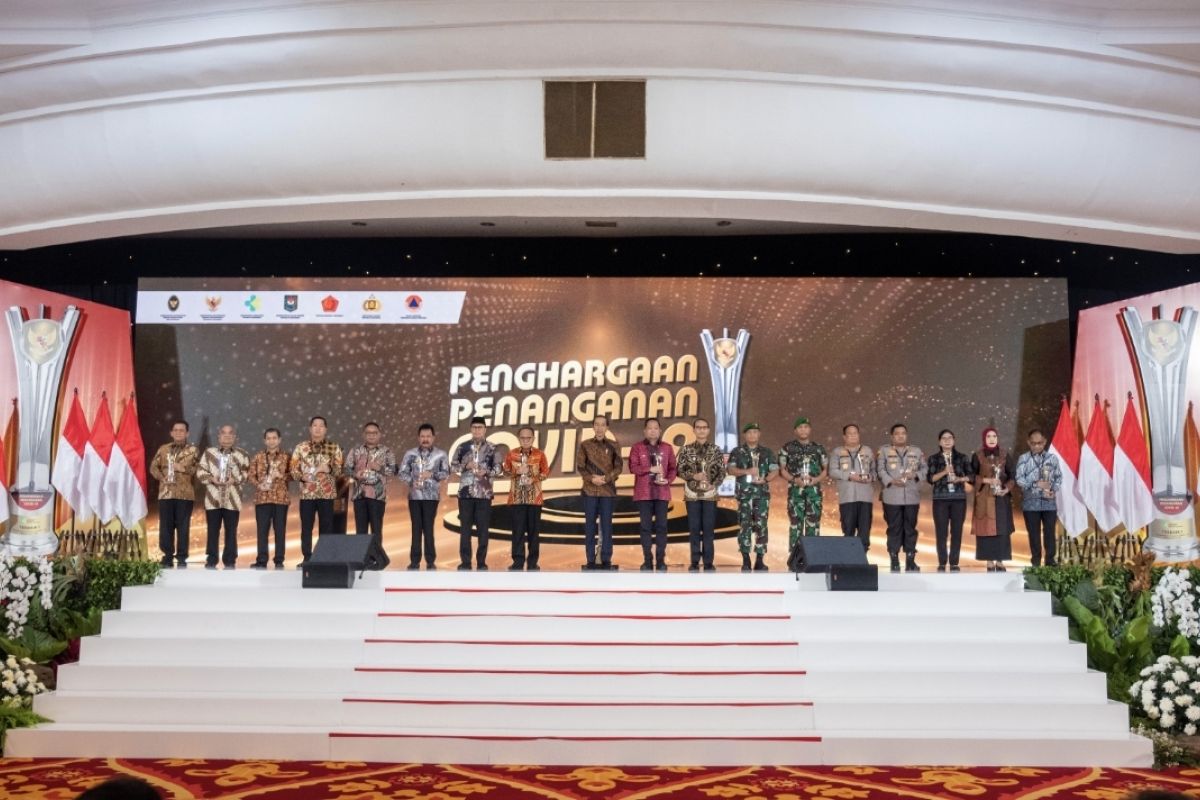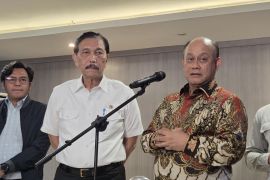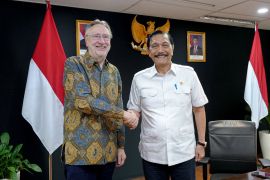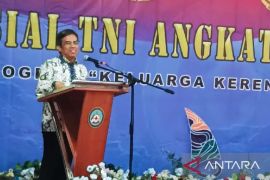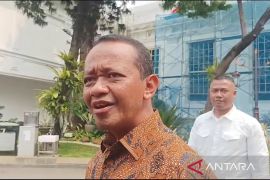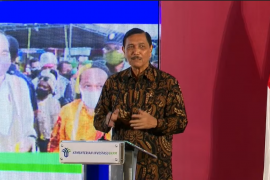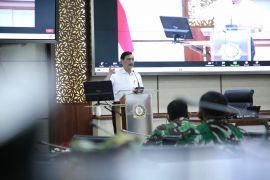"This award is an appreciation for all components in the country who are working hard to handle the pandemic according to their capacity. Awards have also been given to neighboring countries for drug and vaccine assistance," Coordinating Minister for Economic Affairs, Airlangga Hartarto, said.
With the government revoking the PPKM policy on December 31, 2022, Indonesia has entered a transitional stage toward the endemic phase, he said in a speech on 'COVID-19 Handling Awards' at the Finance Ministry’s office in Jakarta on Monday
Currently, there has been a decline in COVID-19 cases in almost all countries, including Indonesia. In fact, according to a serology survey conducted by the Ministry of Health and the University of Indonesia's Faculty of Public Health (FKM UI), the level of the Indonesian population's immunity against COVID-19 has reached 99 percent.
As of March 17, 2023, Indonesia had 3,701 active coronavirus cases, with an accumulated total of 6.7 million confirmed cases. Most of the active cases, or 85.81 percent, were reported in Java-Bali Island, while the remaining 14.19 percent were recorded outside Java-Bali, Hartarto informed.
In general, in March, there has been a fall in cases, with the highest number of active cases seen in Kalimantan. The recovery rate outside Java-Bali has been in the range of 96.96 percent, he added.
On the same occasion, Coordinating Minister for Maritime Affairs and Investment, Luhut Binsar Pandjaitan, said that the government has taken several strategic steps to deal with the pandemic, including the toughest step—the PPKM.
"The PPKM policy was not an easy choice. Community activities had to stop, which had an impact on economic life. This choice had to be made because medical intervention in the form of medicines and oxygen was still very limited at that time," he explained.
He said that in June 2021, health facilities in the country were very limited. Therefore, the government decided to open emergency hospitals because the existing treatment facilities were no longer able to accommodate patients.
“An oxygen crisis occurred at that time and we had to import it (oxygen). Indonesia was grateful to receive oxygen tanks from industries in Morowali, Central Sulawesi," Pandjaitan added.
To reduce virus transmission, vaccinations were carried out simultaneously by involving various parties. As of March 2023, more than 450 million doses of the COVID-19 vaccine have been administered in the country.
"Regarding vaccination coverage, Indonesia is ranked fifth in the world," he pointed out.
Indonesia has also had one of the best track records in the world in handling the COVID-19 pandemic, which has earned it appreciation from various parts of the world, including the World Health Organization (WHO), the minister added.
"Success in handling the pandemic came from the cooperation of all parties, based on science and technology," he stated.
The award for COVID-19 Handling was given by the President to 41 governors, 102 community health centers (puskesmas), 59 hospitals, 100 laboratories, 79 vaccination centers, 18 telemedicine services, 26 WGS (Whole Genome Sequencing) laboratories, 38 mass media and influencer industries, 5 academics and experts, 7 religious organizations, 34 friendly countries, 13 state-owned enterprises, 28 international organizations, 110 foreign private companies, 179 domestic companies, and 30 non-governmental organizations (NGOs).
A member of the jury board for the award, Iwan Ariawan, said that the benchmark for the assessment were local government policies supporting the PPKM policies.
"We checked the completeness of documents, interviews, and others. The province that received the award today deserved it," he remarked.
Related news: Utilize strength to handle COVID-19 for other big agendas: Jokowi
Related news: PPKM revocation demonstrates successful COVID handling strategy: KSP
Translator: Andi Firdaus, Resinta S
Editor: Rahmad Nasution
Copyright © ANTARA 2023
